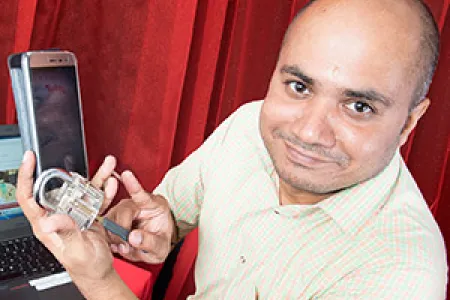Don’t let hackers steal Christmas travel joy
Create a dummy email account, invest in electronic pickpocketing protection and beware of untrusted wi-fi networks are some simple tips Territorians can follow to avoid falling victim to cybercrime when overseas this festive season.
Charles Darwin University IT lecturer Dr Bharanidharan Shanmugam said travellers could safeguard against would-be scammers, skimmers and hackers gaining unauthorised access to their devices and personal information.
“The first rule of travel is never leave a phone, tablet or laptop unattended,” he said. “Just because a device is password-protected doesn’t mean someone can’t break into it and access your personal information.”
He also urged travellers to take precautions against electronic pickpocketing, also known as RFID skimming.
“It’s challenging to balance the convenience of contactless cards with security, but simple wallet protection is available from electronic stores,” he said.
Dr Shanmugam said disabling Bluetooth and wireless capabilities would prevent a device from inadvertently connecting to a dodgy wi-fi network.
“Hackers can use a $100 device to set up a legitimate-looking wireless hotspot and use the system to steal information,” he said. “Remove all non-essential data and software from a device before travel to reduce the risk of someone exploiting it. You can’t be too careful.”
Tips for cyber-secure overseas travel:
* Create a dummy email account for travel itineraries and correspondence, and / or enable a second factor authentication (SMS code sent to your phone upon log-in)
* Complete as much online banking as possible before travelling overseas, and inform your bank and telco of your travel plans
* Activate or buy encryption software for devices
* Clean the browser on public computers after use
* Understand the cybersecurity rules and regulations of your destination.
